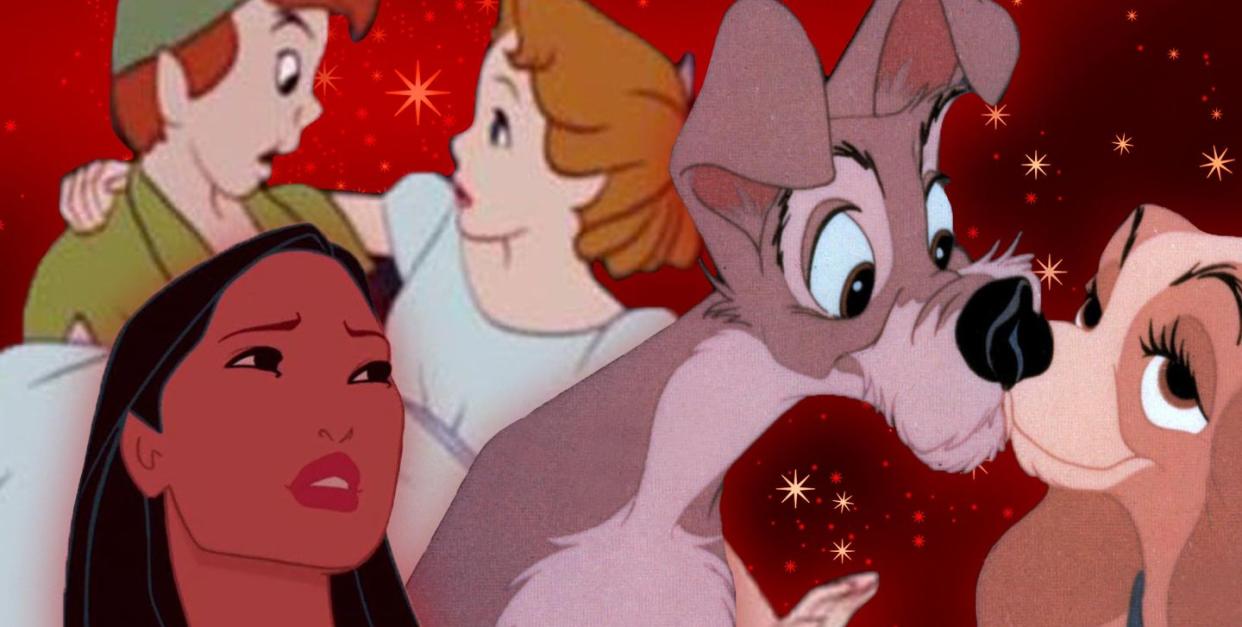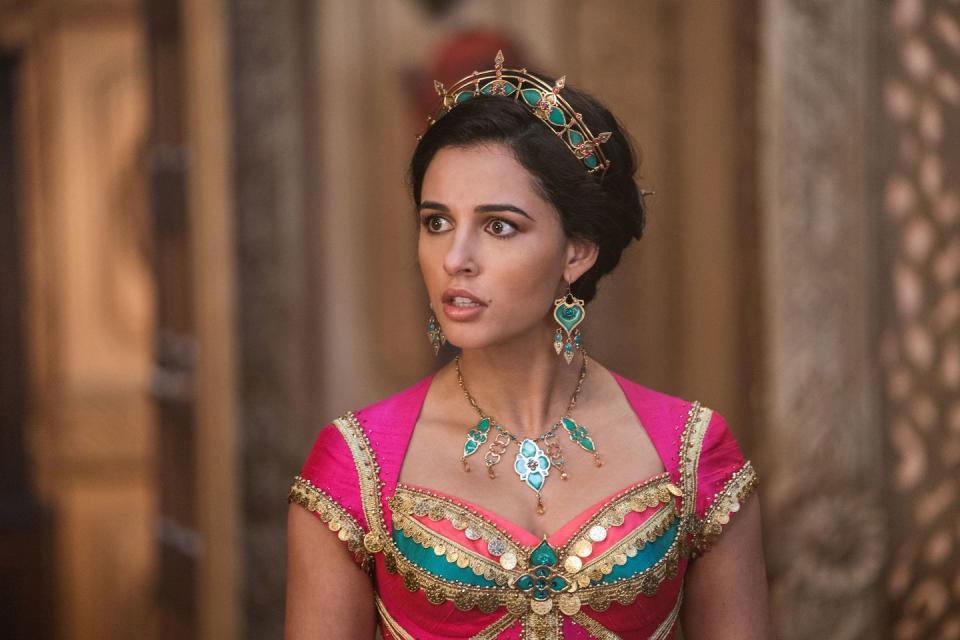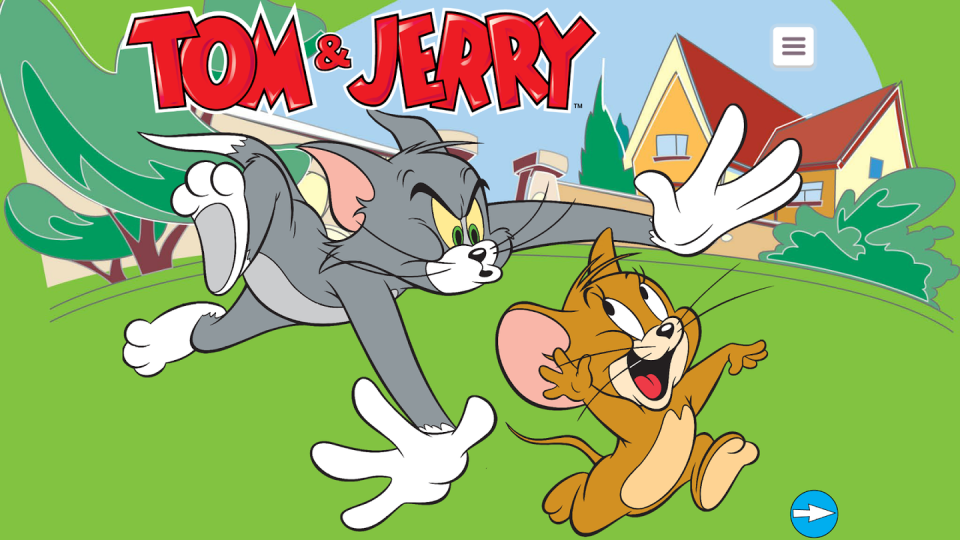Disney+'s warning of "outdated cultural depictions" misses the point

At the risk of stating the obvious, Disney is massive. From films to shows to amusement parks, the reach and content of the Disney machine is almost beyond comprehension.
So when the company announced it was wading into the streaming game, the only appropriate response was a resigned shrug. Joining the likes of Netflix, Amazon Prime, Hulu, HBO Max, is Disney+, which went live in the USA and The Netherlands on November 12.
In the UK and elsewhere (apart from Australia and New Zealand on 19 Nov), we're forced to wait till March 31, 2020. But the Internet is a thing! This means people globally are already aware of what's new and streaming on Disney+ (and the controversies these shows have been creating). The back catalogue of Disney movies spans decades and most are also available to watch on the service. A lot of it is, well, Disney would say "outdated".
Some of these disclaimers just refer to depictions of tobacco use. pic.twitter.com/UQJjtaYlm7
— My Own Private Zuvio (@RJKulb) November 13, 2019
Customers are allowed to express to a business when they aren't satisfied by the service they're providing, especially when it comes to how they handle internal and past bigotry.
— Joey, the Sad Kirb (@TackyRackyComix) November 14, 2019
Interesting ... can't wait to see how they handle Pocohantas & Aladdin
— Alison Bing (@AlisonBing) November 12, 2019
"outdated cultural depictions" is so incredibly vague
— Clair Dunlap (@smallgourd) November 12, 2019
I'm glad they're not editing the films, but I wish Disney would invest in interrogating their own history and providing space for a discussion of it.
— The Notorious LHB (@lhbizness) November 12, 2019
Feel like they really could have gone a step towards actually acknowledging which outdated cultural depictions they're talking about.
— Aaron W. Gordon (@A_W_Gordon) November 12, 2019
On content like Lady and the Tramp, for example, Disney included in the description of the film: "This program is presented as originally created. It may contain outdated cultural depictions." In this case, they're referencing the Siamese Cats.
The recent remake of Lady and the Tramp wholly reinvented the Siamese cats. But in the original animated film, the pair are modelled on racist stereotypes of east-Asian people. They're also the villains of the film, surprise surprise.
This Disney+ warning is only partly accurate. The problem is that the categorisation 'outdated' implies that at a certain point in time these things were okay.
But they weren't. While they might have been widely accepted, they weren't okay. They were racist then and they are racist now.
Furthermore, it's not made clear what "outdated" content they're referencing. There are plenty of Disney films which have all manner of nuanced problems.
Almost every film with a princess in it has deep undertones of misogyny. Mothers are often killed off so that protagonists can have motivation. Wendy is meant to be Peter Pan's mother and love interest? Yuck. We're not arguing that every film should have a warning, simply illustrating the inadequacy – and inconsistent application – of the existing one.
The content warning isn't applied to other movies which have overt racist themes. Peter Pan, which is problematic for so many reasons including its depiction of Native Americans, gets no such warning. Nor does Aladdin. Nor does Pocahontas!

Also, the content warning is wrong. Not all of their films are presented as they were initially created. The Week journalist Jeva Lange pointed out that despite claiming the movies are as they were, films like Fantasia are presented having been edited.
Disney's tactic of simply ignoring things it doesn't want to acknowledge (like Song of the South) or removing them and rendering us all paranoid (we do all remember that sexual assault joke in Toy Story 2's blooper reel, right?) will only work for so long, as is evidenced by the Twitter reaction to the Disney+ content warning.
There are several overt ironies in the disclaimer Disney has posted. Firstly, how can something be a timeless classic and also include outdated cultural depictions? The terms are oxymoronic.

On the flip side, the Mouse House of now is very sensitive to things that might rock their conservative fanbase. The firing of James Gunn was evidence of this (his tweets were dredged up by alt-right 'personality' Mike Cernovich in the wake of Gunn's criticism of Donald Trump).
They rehired him in the end, perhaps knowing that their actual content (Guardians of the Galaxy Vol 3) would suffer without him and this outweighed the risk of annoying some people on Twitter.
It is worth pointing out that Disney isn't the only studio guilty of playing in racist stereotypes. Warner Bros famously put a warning on their old episodes of Tom and Jerry: "Tom and Jerry shorts may depict some ethnic and racial prejudices that were once commonplace in American society. Such depictions were wrong then and are wrong today."

This warning explicitly takes responsibility for the racist depictions Warner Bros property displayed (while continuing to capitalise on it, you'll note). Disney comes close but falls short of actually owning the wrongs of the past.
Hopefully, Disney can learn from this, and move into the second decade of the 21st century with clearer ownership of its past and create content that grows in its representation of the people who enjoy their films.
Digital Spy now has a newsletter – sign up to get it sent straight to your inbox.
Want up-to-the-minute entertainment news and features? Just hit 'Like' on our Digital Spy Facebook page and 'Follow' on our @digitalspy Instagram and Twitter accounts.
You Might Also Like

